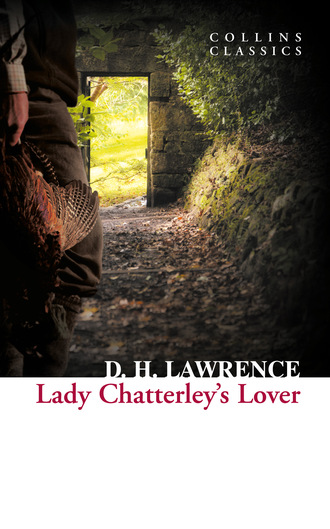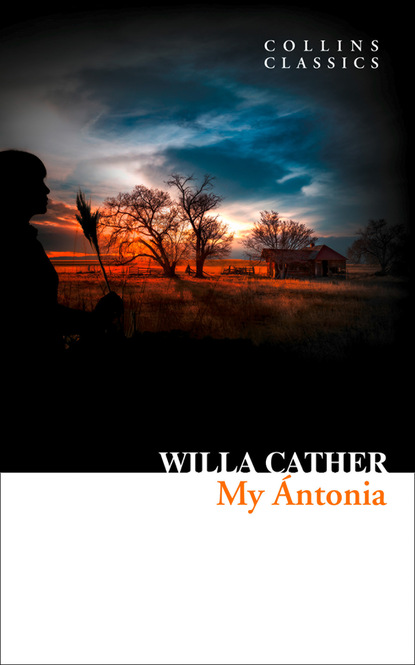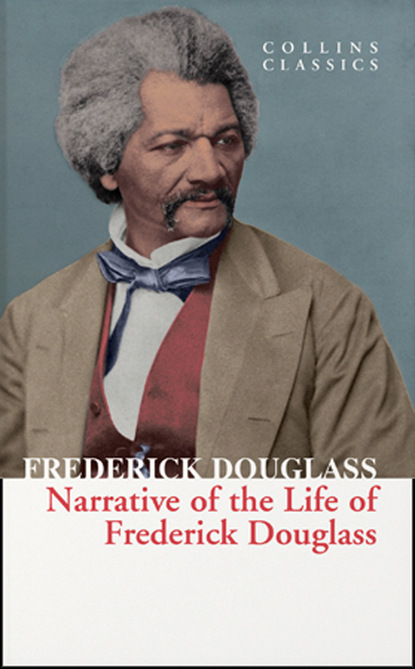
Полная версия
Lady Chatterley’s Lover
Clifford Chatterley was more upper-class than Connie. Connie was well-to-do intelligentsia, but he was aristocracy. Not the big sort, but still it. His father was a baronet, and his mother had been a viscount’s daughter.
But Clifford, while he was better bred than Connie, and more ‘society’, was in his own way more provincial and more timid. He was at his ease in the narrow ‘great world’, that is, landed aristocracy society, but he was shy and nervous of all that other big world which consists of the vast hordes of the middle and lower classes, and foreigners. If the truth must be told, he was just a little bit frightened of middle-and lower-class humanity, and of foreigners not of his own class. He was, in some paralysing way, conscious of his own defencelessness, though he had all the defence of privilege. Which is curious, but a phenomenon of our day.
Therefore the peculiar soft assurance of a girl like Constance Reid fascinated him. She was so much more mistress of herself in that outer world of chaos than he was master of himself.
Nevertheless he too was a rebel: rebelling even against his class. Or perhaps rebel is too strong a word; far too strong. He was only caught in the general, popular recoil of the young against convention and against any sort of real authority. Fathers were ridiculous: his own obstinate one supremely so. And governments were ridiculous: our own wait-and-see sort especially so. And armies were ridiculous, and old buffers of generals altogether, the red-faced Kitchener supremely. Even the war was ridiculous, though it did kill rather a lot of people.
In fact everything was a little ridiculous, or very ridiculous: certainly everything connected with authority, whether it were in the army or the government or the universities, was ridiculous to a degree. And as far as the governing class made any pretensions to govern, they were ridiculous too. Sir Geoffrey, Clifford’s father, was intensely ridiculous, chopping down his trees, and weeding men out of his colliery to shove them into the war; and himself being so safe and patriotic; but, also, spending more money on his country than he’d got.
When Miss Chatterley – Emma – came down to London from the Midlands to do some nursing work, she was very witty in a quiet way about Sir Geoffrey and his determined patriotism. Herbert, the elder brother and heir, laughed outright, though it was his trees that were falling for trench props. But Clifford only smiled a little uneasily. Everything was ridiculous, quite true. But when it came too close and oneself became ridiculous too…? At least people of a different class, like Connie, were earnest about something. They believed in something.
They were rather earnest about the Tommies, and the threat of conscription, and the shortage of sugar and toffee for the children. In all these things, of course, the authorities were ridiculously at fault. But Clifford could not take it to heart. To him the authorities were ridiculous ab ovo, not because of toffee or Tommies.
And the authorities felt ridiculous, and behaved in a rather ridiculous fashion, and it was all a mad hatter’s tea-party for a while. Till things developed over there, and Lloyd George came to save the situation over here. And this surpassed even ridicule, the flippant young laughed no more.
In 1916 Herbert Chatterley was killed, so Clifford became heir. He was terrified even of this. His importance as son of Sir Geoffrey, and child of Wragby, was so ingrained in him, he could never escape it. And yet he knew that this too, in the eyes of the vast seething world, was ridiculous. Now he was heir and responsible for Wragby. Was that not terrible? and also splendid and at the same time, perhaps, purely absurd?
Sir Geoffrey would have none of the absurdity. He was pale and tense, withdrawn into himself, and obstinately determined to save his country and his own position, let it be Lloyd George or who it might. So cut off he was, so divorced from the England that was really England, so utterly incapable, that he even thought well of Horatio Bottomley. Sir Geoffrey stood for England and Lloyd George as his forebears had stood for England and St George: and he never knew there was a difference. So Sir Geoffrey felled timber and stood for Lloyd George and England, England and Lloyd George.
And he wanted Clifford to marry and produce an heir. Clifford felt his father was a hopeless anachronism. But wherein was he himself any further ahead, except in a wincing sense of the ridiculousness of everything, and the paramount ridiculousness of his own position? For willy-nilly he took his baronetcy and Wragby with the last seriousness.
The gay excitement had gone out of the war … dead. Too much death and horror. A man needed support and comfort.A man needed to have an anchor in the safe world. A man needed a wife.
The Chatterleys, two brothers and a sister, had lived curiously isolated, shut in with one another at Wragby, in spite of all their connexions. A sense of isolation intensified the family tie, a sense of the weakness of their position, a sense of defencelessness, in spite of, or because of, the title and the land. They were cut off from those industrial Midlands in which they passed their lives. And they were cut off from their own class by the brooding, obstinate, shut-up nature of Sir Geoffrey, their father, whom they ridiculed, but whom they were so sensitive about.
The three had said they would all live together always. But now Herbert was dead, and Sir Geoffrey wanted Clifford to marry. Sir Geoffrey barely mentioned it: he spoke very little. But his silent, brooding insistence that it should be so was hard for Clifford to bear up against.
But Emma said No! She was ten years older than Clifford, and she felt his marrying would be a desertion and a betrayal of what the young ones of the family had stood for.
Clifford married Connie, nevertheless, and had his month’s honeymoon with her. It was the terrible year 1917, and they were intimate as two people who stand together on a sinking ship. He had been virgin when he married: and the sex part did not mean much to him. They were so close, he and she, apart from that. And Connie exulted a little in this intimacy which was beyond sex, and beyond a man’s ‘satisfaction’. Clifford anyhow was not just keen on his ‘satisfaction’, as so many men seemed to be. No, the intimacy was deeper, more personal than that. And sex was merely an accident, or an adjunct, one of the curious obsolete, organic processes which persisted in its own clumsiness, but was not really necessary. Though Connie did want children: if only to fortify her against her sister-in-law Emma.
But early in 1918 Clifford was shipped home smashed, and there was no child. And Sir Geoffrey died of chagrin.
CHAPTER 2
Connie and Clifford came home to Wragby in the autumn of 1920. Miss Chatterley, still disgusted at her brother’s defection, had departed and was living in a little flat in London.
Wragby was a long low old house in brown stone, begun about the middle of the eighteenth century, and added on to, till it was a warren of a place without much distinction. It stood on an eminence in a rather line old park of oak trees, but alas, one could see in the near distance the chimney of Tevershall pit, with its clouds of steam and smoke, and on the damp, hazy distance of the hill the raw straggle of Tevershall village, a village which began almost at the park gates, and trailed in utter hopeless ugliness for a long and gruesome mile: houses, rows of wretched, small, begrimed, brick houses, with black slate roofs for lids, sharp angles and wilful, blank dreariness.
Connie was accustomed to Kensington or the Scotch hills or the Sussex downs: that was her England. With the stoicism of the young she took in the utter, soulless ugliness of the coal-and-iron Midlands at a glance, and left it at what it was: unbelievable and not to be thought about. From the rather dismal rooms at Wragby she heard the rattle-rattle of the screens at the pit, the puff of the winding-engine, the clink-clink of shunting trucks, and the hoarse little whistle of the colliery locomotives. Tevershall pit-bank was burning, had been burning for years, and it would cost thousands to put it out. So it had to burn. And when the wind was that way, which was often, the house was full of the stench of this sulphurous combustion of the earth’s excrement. But even on windless days the air always smelt of something under-earth: sulphur, iron, coal, or acid. And even on the Christmas roses the smuts settled persistently, incredible, like black manna from theskies of doom.
Well, there it was: fated like the rest of things! It was rather awful, but why kick? You couldn’t kick it away. It just went on. Life, like all the rest! On the low dark ceiling of cloud at night red blotches burned and quavered, dappling and swelling and contracting, like burns that give pain. It was the furnaces. At first they fascinated Connie with a sort of horror; she felt she was living underground. Then she got used to them. And in the morning it rained.
Clifford professed to like Wragby better than London. This country had a grim will of its own, and the people had guts. Connie wondered what else they had: certainly neither eyes nor minds. The people were as haggard, shapeless, and dreary as the countryside, and as unfriendly. Only there was something in their deep-mouthed slurring of the dialect, and the thresh-thresh of their hob-nailed pit-boots as they trailed home in gangs on the asphalt from work, that was terrible and a bit mysterious.
There had been no welcome home for the young squire, no festivities, no deputation, not even a single flower. Only a dank ride in a motor-car up a dark, damp drive, burrowing through gloomy trees, out to the slope of the park where grey damp sheep were feeding, to the knoll where the house spread its dark brown facade, and the housekeeper and her husband were hovering, like unsure tenants on the face of the earth, ready to stammer a welcome.
There was no communication between Wragby Hall and Tevershall village, none. No caps were touched, no curtseys bobbed. The colliers merely stared; the tradesmen lifted their caps to Connie as to an acquaintance, and nodded awkwardly to Clifford; that was all. Gulf impassable, and a quiet sort of resentment on either side. At first Connie suffered from the steady drizzle of resentment that came from the village. Then she hardened herself to it, and it became a sort of tonic, something to live up to. It was not that she and Clifford were unpopular, they merely belonged to another species altogether from the colliers. Gulf impassable, breach indescribable, such as is perhaps nonexistent south of the Trent. But in the Midlands and the industrial North gulf impassable, across which no communication could take place. You stick to your side, I’ll stick to mine! A strange denial of the common pulse of humanity.
Yet the village sympathized with Clifford and Connie in the abstract. In the flesh it was – You leave me alone! – on either side.
The rector was a nice man of about sixty, full of his duty, and reduced, personally, almost to a nonentity by the silent – You leave me alone! – of the village. The miners’ wives were nearly all Methodists. The miners were nothing. But even so much official uniform as the clergyman wore was enough to obscure entirely the fact that he was a man like any other man. No, he was Mester Ashby, a sort of automatic preaching and praying concern.
This stubborn, instinctive – We think ourselves as good as you, if you are Lady Chatterley! – puzzled and baffled Connie at first extremely. The curious, suspicious, false amiability with which the miners’ wives met her overtures; the curiously offensive tinge of – Oh dear me! I am somebody now, with Lady Chatterley talking to me! But she needn’t think I’m not as good as her for all that! – which she always heard twanging in the women’s half-fawning voices, was impossible. There was no getting past it. It was hopelessly and offensively nonconformist.
Clifford left them alone, and she learnt to do the same: she just went by without looking at them, and they stared as if she were a walking wax figure. When he had to deal with them, Clifford was rather haughty and contemptuous; one could no longer afford to be friendly. In fact he was altogether rather supercilious and contemptuous of anyone not in his own class. He stood his ground, without any attempt at conciliation. And he was neither liked nor disliked by the people: he was just part of things, like the pit-bank and Wragby itself.
But Clifford was really extremely shy and self-conscious now he was lamed. He hated seeing anyone except just the personal servants. For he had to sit in a wheeled chair or a sort of bath-chair. Nevertheless he was just as carefully dressed as ever, by his expensive tailors, and he wore the careful Bond Street neckties just as before, and from the top he looked just as smart and impressive as ever. He had never been one of the modern ladylike young men: rather bucolic even, with his ruddy face and broad shoulders. But his very quiet, hesitating voice, and his eyes, at the same time bold and frightened, assured and uncertain, revealed his nature. His manner was often offensively supercilious, and then again modest and self-effacing, almost tremulous.
Connie and he were attached to one another, in the aloof modern way. He was much too hurt in himself, the great shock of his maiming, to be easy and flippant. He was a hurt thing. And as such Connie stuck to him passionately.
But she could not help feeling how little connexion he really had with people. The miners were, in a sense, his own men; but he saw them as objects rather than men, parts of the pit rather than parts of life, crude raw phenomena rather than human beings along with him. He was in some way afraid of them, he could not bear to have them look at him now he was lame. And their queer, crude life seemed as unnatural as that of hedgehogs.
He was remotely interested; but like a man looking down a microscope, or up a telescope. He was not in touch. He was not in actual touch with anybody, save, traditionally, with Wragby, and, through the close bond of family defence, with Emma. Beyond this nothing really touched him. Connie felt that she herself didn’t really, not really touch him; perhaps there was nothing to get at ultimately; just a negation of human contact.
Yet he was absolutely dependent on her, he needed her every moment. Big and strong as he was, he was helpless. He could wheel himself about in a wheeled chair, and he had a sort of bath-chair with a motor attachment, in which he could puff slowly round the park. But alone he was like a lost thing. He needed Connie to be there, to assure him he existed at all.
Still he was ambitious. He had taken to writing stories; curious, very personal stories about people he had known. Clever, rather spiteful, and yet, in some mysterious way, meaningless. The observation was extraordinary and peculiar. But there was no touch, no actual contact. It was as if the whole thing took place in a vacuum. And since the field of life is largely an artificially-lighted stage today, the stories were curiously true to modern life, to the modern psychology, that is.
Clifford was almost morbidly sensitive about these stories. He wanted everyone to think them good, of the best, ne plus ultra. They appeared in the most modern magazines, and were praised and blamed as usual. But to Clifford the blame was torture, like knives goading him. It was as if the whole of his being were in his stories.
Connie helped him as much as she could. At first she was thrilled. He talked everything over with her monotonously, insistently, persistently, and she had to respond with all her might. It was as if her whole soul and body and sex had to rouse up and pass into theme stories of his. This thrilled her and absorbed her.
Of physical life they lived very little. She had to superintend the house. But the housekeeper had served Sir Geoffrey for many years, and the dried-up, elderly, superlatively correct female you could hardly call her a parlour-maid, or even a woman … who waited at table, had been in the house for forty years. Even the very housemaids were no longer young. It was awful! What could you do with such a place, but leave it alone! All these endless rooms that nobody used, all the Midlands routine, the mechanical cleanliness and the mechanical order! Clifford had insisted on a new cook, an experienced woman who had served him in his rooms in London. For the rest the place seemed run by mechanical anarchy. Everything went on in pretty good order, strict cleanliness, and strict punctuality; even pretty strict honesty. And yet, to Connie, it was a methodical anarchy. No warmth of feeling united it organically. The house seemed as dreary as a disused street.
What could she do but leave it alone? So she left it alone. Miss Chatterley came sometimes, with her aristocratic thin face, and triumphed, finding nothing altered. She would never forgive Connie for ousting her from her union in consciousness with her brother. It was she, Emma, who should be bringing forth the stories, these books, with him; the Chatterley stories, something new in the world, that they, the Chatterleys, had put there. There was no other standard. There was no organic connexion with the thought and expression that had gone before. Only something new in the world: the Chatterley books, entirely personal.
Connie’s father, where he paid a flying visit to Wragby, and in private to his daughter: As for Clifford’s writing, it’s smart, but there’s nothing in it. It won’t last! Connie looked at the burly Scottish knight who had done himself well all his life, and her eyes, her big, still-wondering blue eyes became vague. Nothing in it! What did he mean by nothing in it? If the critics praised it, and Clifford’s name was almost famous, and it even brought in money … what did her father mean by saying there was nothing in Clifford’s writing? What else could there be?
For Connie had adopted the standard of the young: what there was in the moment was everything. And moments followed one another without necessarily belonging to one another.
It was in her second winter at Wragby her father said to her: ‘I hope, Connie, you won’t let circumstances force you into being a demi-vierge.’
‘A demi-vierge!’ replied Connie vaguely. ‘Why? Why not?’
‘Unless you like it, of course!’ said her father hastily. To Clifford he said the same, when the two men were alone: ‘I’m afraid it doesn’t quite suit Connie to be a demi-vierge.’
‘A half-virgin!’ replied Clifford, translating the phrase to be sure of it.
He thought for a moment, then flushed very red. He was angry and offended.
‘In what way doesn’t it suit her?’ he asked stiffly.
‘She’s getting thin … angular. It’s not her style. She’s not the pilchard sort of little slip of a girl, she’s a bonny Scotch trout.’
‘Without the spots, of course!’ said Clifford.
He wanted to say something later to Connie about the demi-vierge business … the half-virgin state of her affairs. But he could not bring himself to do it. He was at once too intimate with her and not intimate enough. He was so very much at one with her, in his mind and hers, but bodily they were non-existent to one another, and neither could bear to drag in the corpus delicti. They were so intimate, and utterly out of touch.
Connie guessed, however, that her father had said something, and that something was in Clifford’s mind. She knew that he didn’t mind whether she were demi-vierge or demi-monde, so long as he didn’t absolutely know, and wasn’t made to see. What the eye doesn’t see and the mind doesn’t know, doesn’t exist.
Connie and Clifford had now been nearly two years at Wragby, living their vague life of absorption in Clifford and his work. Their interests had never ceased to flow together over his work. They talked and wrestled in the throes of composition, and felt as if something were happening, really happening, really in the void.
And thus far it was a life: in the void. For the rest it was non-existence. Wragby was there, the servants … but spectral, not really existing. Connie went for walks in the park, and in the woods that joined the park, and enjoyed the solitude and the mystery, kicking the brown leaves of autumn, and picking the primroses of spring. But it was all a dream; or rather it was like the simulacrum of reality. The oak-leaves were to her like oak-leaves seen ruffling in a mirror, she herself was a figure somebody had read about, picking primroses that were only shadows or memories, or words. No substance to her or anything … no touch, no contact! Only this life with Clifford, this endless spinning of webs of yarn, of the minutiae of consciousness, these stories Sir Malcolm said there was nothing in, and they wouldn’t last. Why should there be anything in them, why should they last? Sufficient unto the day is the evil thereof. Sufficient unto the moment is the appearance of reality.
Clifford had quite a number of friends, acquaintances really, and he invited them to Wragby. He invited all sorts of people, critics and writers, people who would help to praise his books. And they were flattered at being asked to Wragby, and they praised. Connie understood it all perfectly. But why not? This was one of the fleeting patterns in the mirror. What was wrong with it?
She was hostess to these people … mostly men. She was hostess also to Clifford’s occasional aristocratic relations. Being a soft, ruddy, country-looking girl, inclined to freckles, with big blue eyes, and curling, brown hair, and a soft voice, and rather strong, female loins she was considered a little old-fashioned and ‘womanly’. She was not a ‘little pilchard sort of fish’, like a boy, with a boy’s flat breast and little buttocks. She was too feminine to be quite smart.
So the men, especially those no longer young, were very nice to her indeed. But, knowing what torture poor Clifford would feel at the slightest sign of flirting on her part, she gave them no encouragement at all. She was quiet and vague, she had no contact with them and intended to have none. Clifford was extraordinarily proud of himself.
His relatives treated her quite kindly. She knew that the kindliness indicated a lack of fear, and that these people had no respect for you unless you could frighten them a little. But again she had no contact. She let them be kindly and disdainful, she let them feel they had no need to draw their steel in readiness. She had no real connexion with them.
Time went on. Whatever happened, nothing happened, because she was so beautifully out of contact. She and Clifford lived in their ideas and his books. She entertained … there were always people in the house. Time went on as the clock does, half past eight instead of half past seven.
CHAPTER 3
Connie was aware, however, of a growing restlessness. Out of her disconnexion, a restlessness was taking possession of her like madness. It twitched her limbs when she didn’t want to twitch them, it jerked her spine when she didn’t want to jerk upright but preferred to rest comfortably. It thrilled inside her body, in her womb, somewhere, till she felt she must jump into water and swim to get away from it; a mad restlessness. It made her heart beat violently for no reason. And she was getting thinner.
It was just restlessness. She would rush off across the park, abandon Clifford, and lie prone in the bracken. To get away from the house … she must get away from the house and everybody. The work was her one refuge, her sanctuary.
But it was not really a refuge, a sanctuary, because she had no connexion with it. It was only a place where she could get away from the rest. She never really touched the spirit of the wood itself … if it had any such nonsensical thing.
Vaguely she knew herself that she was going to pieces in some way. Vaguely she knew she was out of connexion: she had lost touch with the substantial and vital world. Only Clifford and his books, which did not exist … which had nothing in them! Void to void. Vaguely she knew. But it was like beating her head against a stone.







